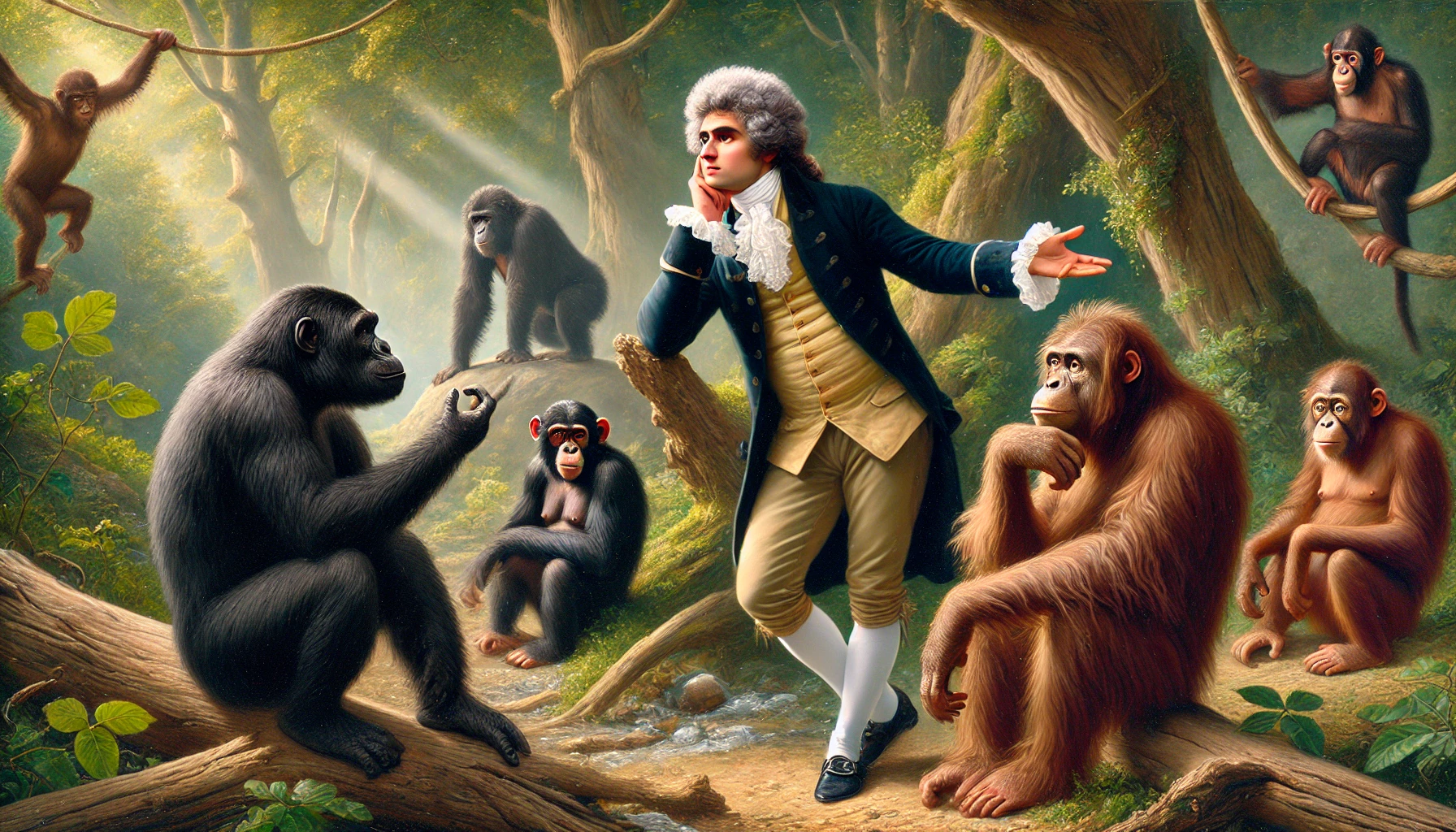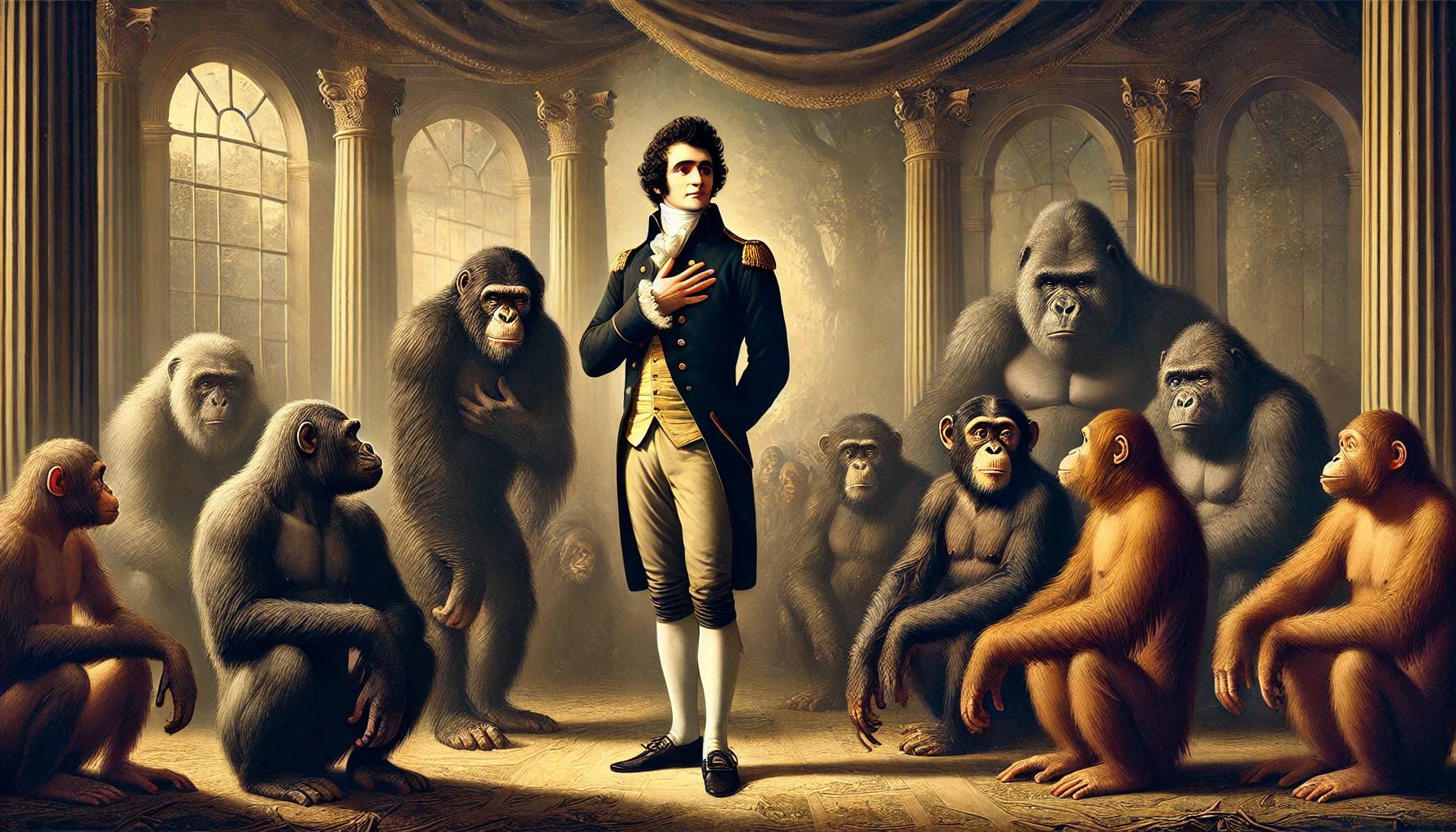
Illustration by DALL·E
Jean-Jacques Rousseau: Being more generous when defining Man
The question of the “us” extends however beyond the borders of the Homo sapiens species. Jean-Jacques Rousseau (1712-1778) in his Essay on the origin of Inequality held the view that we’ve been most ungenerous in our manner of assigning the status of human being. Discussing the reports of various travellers he had come to the following conclusion:
“We do not see in these passages [wherein travellers report their contacts with great apes] the reasons on which the authors base themselves to refuse the animals in question the name of Savage men, but it is easy to conjecture that it is because of their stupidity, and also because they did not speak; weak reasons for those who know that although the organ of speech is natural to man, speech itself is not natural to him, and who know to what extent its perfectibility may have raised Civil Man above his original state” (Rousseau III: 210).
Although Rousseau did not settle the question, where his feelings were heading is nonetheless easy to guess:
“Hasty judgements, which are not the fruit of enlightened reason, are subject to excess. Our travellers indiscriminately see Beasts under the names of Pongos, Mandrills, Orang-utan, the same beings whose divinities were made by the Ancients under the names of Satyrs, Fauns, Sylvans. Perhaps after more exact research we will find that they are men [‘that they are neither beasts nor gods, but men…’ (in the 1782 edition)]” (Rousseau III: 211).
True experts only are in a position to settle such matters:
“I say that when such observers (a Montesquieu, a Buffon, a Diderot, a Duclos, a d’Alembert, a Condillac, or men of that calibre affirm from such an animal that it is a man, and from another that it is a beast, they must be believed; but it would be a great naivety to refer to this, to coarse travellers, on whom one would sometimes be tempted to raise the same question that they try to solve on other animals” (Rousseau III: 213-214).
Posthumanism, under various guises, has similarly suggested extending positive reciprocity beyond the boundaries of the human species, i.e. beyond the limits established in terms of communicability through human-type languages. Elephants 1 and an orang-utan 2 have been set free following a trial. On what account are these animals treated as human beings? Because they seem to experience suffering in a way that speaks to us as they are reminiscent of the way we feel pain and the manner we express it , and the way they express it without words reminds us of our own.
Of course they need to be represented since as Rousseau put it: “because of their stupidity, and also because they did not speak”. Mammals no doubt show awareness, but do they display what we label “consciousness” to contrast it with mere “awareness”? Some authors now claim that consciousness as we experience it is only rendered possible by our use of language.
=================
Rousseau, Jean-Jacques, Œuvres complètes III, Paris : La Pléiade 1964
1 “Chain Free/Mahouts. The mesure of success”, le 27 février 2016
2 Rescue Watch: “The Heartwarming Story of Harapi”

Illustration by DALL·E